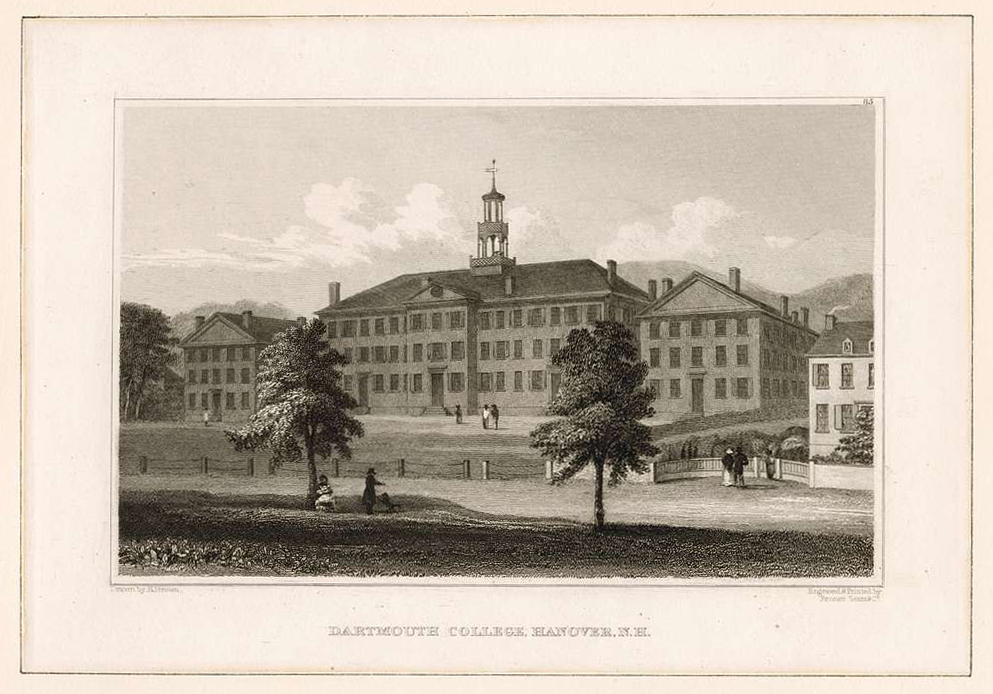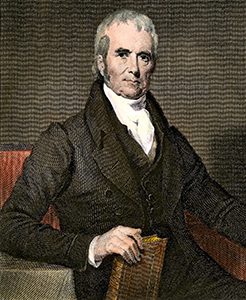On This Day In History
February 2, 1819, the Marshall Court ruled in the landmark case, Trustees of Dartmouth College v. Woodward
Dartmouth College Hanover, New Hampshire
On this day in history, February 2, the 1819 Supreme Court under Chief Justice John Marshall handed down a landmark decision in Dartmouth College v. Woodward.
Dartmouth College, at the time, was a humble, private institution nestled in the backwoods of New Hampshire, its motto: “A voice crying out in the wilderness.” The state’s legislature passed a law that gave the state the power to alter the charter of Dartmouth College, which included the power to change the college’s governance and control its property. The college argued that the state’s actions stood in violation of the 1769 charter granted to it by King George III, protecting the college’s autonomy.
The Supreme Court decided in favor of Dartmouth College, ruling that the state’s actions were a violation of the Constitution’s Contract Clause, which protects contracts from being altered by the government without the consent of the parties involved.
In his opinion, Marshall argued that the charter granted to Dartmouth College by King George III in 1769 was a contract between the college and the state, and that the state was therefore bound by the terms of the charter. He rejected the argument that the charter was a grant of power from the state to the college, writing that the college was an “artificial being, invisible, intangible, and existing only in contemplation of law.” As such, it had the same rights as a person under the Constitution.
The Court’s decision thus established the principle of corporate personhood, which holds that corporations, like individuals, have certain constitutional rights, including the right to enter into contracts. The reasoning behind Dartmouth College v. Woodward has had significant implications for corporate law and the development of the modern business corporation. Historians also credit the case in solidifying the role of the Supreme Court as the final arbiter of constitutional disputes.





